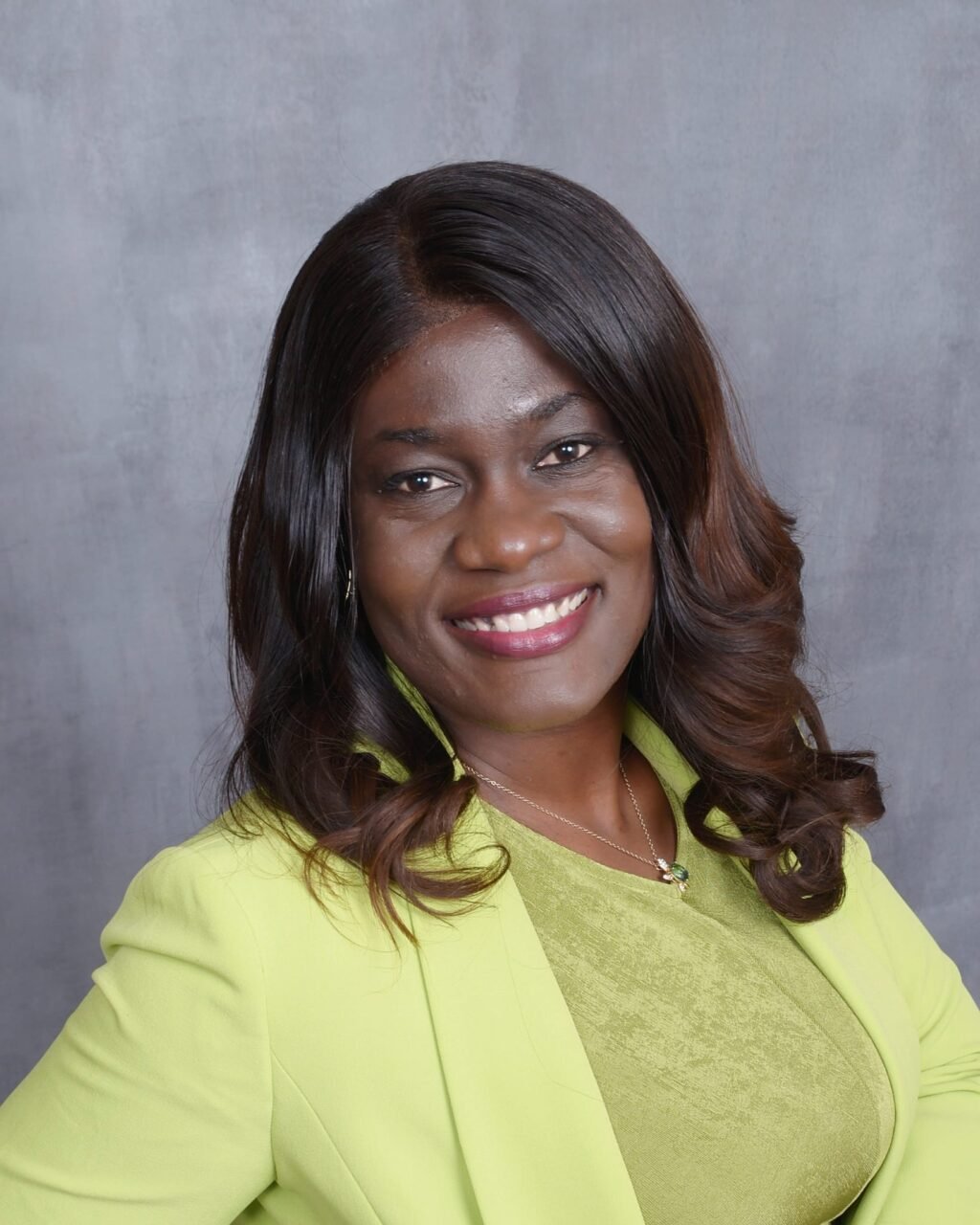
Africa stands on the cusp of a digital revolution, fueled by its youthful population, expanding internet access, and thriving tech ecosystem. However, with these opportunities come significant challenges—gaps in digital trust being one of the most pressing. While global leaders advance robust data privacy frameworks and AI governance strategies, many African organizations are playing catch-up. The continent faces a dual challenge: closing the knowledge gap among corporate leaders and addressing the absence of localized strategies to safeguard privacy and trust in a uniquely African context.
Introducing Amaka Ibeji, a Nigerian technology professional, wife, and mother based in the United States. She has devoted over 15 years to providing thought leadership in privacy engineering, Artificial Intelligence governance, and digital trust, leveraging her extensive experience and education.
With impactful roles at Microsoft, Deloitte, Cruise LLC, and the UBA Group in Africa, Amaka has led initiatives to architect privacy frameworks, implement AI governance strategies, and design cybersecurity controls tailored to diverse organizational needs. Through her initiatives like PALS Hub and her weekly column in BusinessDay Newspaper, she equips corporate boards to navigate the complexities of digital trust while ensuring Africa’s voice is heard on the global stage.
In this exclusive interview, Amaka shares her journey, accomplishments, and her vision for Africa’s digital transformation.
You’ve had an illustrious career spanning over 15 years in technology. What inspired your focus on digital trust?
My journey into digital trust was driven by a deep awareness of how technology, while transformative, poses significant risks when not managed responsibly. In my early career, I saw firsthand the challenges organisations faced in balancing innovation with data privacy and ethical considerations. Over time, I realized that digital trust is the foundation for sustainable growth in the digital age – it ensures that individuals, businesses, and governments can use technology confidently.
For Africa, this is particularly important. As we rapidly digitize, we must ensure that our systems are not only innovative but also secure and inclusive. Unfortunately, many organizations across the continent lack the frameworks and policies needed to manage privacy concerns, AI ethics, and cybersecurity risks. My work focuses on addressing these gaps, equipping corporate boards with the knowledge to oversee digital strategies effectively, and fostering a culture of trust in how technology is used.
Why do you believe digital trust is so crucial for African organisations, and how can they leverage it to compete globally?
Digital trust is the bedrock of innovation. For African organizations, it goes beyond regulatory compliance; it’s about building confidence with customers, investors, and global partners.
By prioritising privacy, cybersecurity, and AI ethics, African businesses can position themselves as trustworthy players in the global digital economy.
This involves adopting global best practices while also creating solutions that address uniquely African challenges such as low digital literacy or fragmented regulatory frameworks.
The opportunity lies in leveraging our creativity and resilience to design systems and policies that ensure responsible technology use. By doing this, African organizations can not only compete globally but also redefine what it means to innovate responsibly.
You’ve emphasized the importance of corporate boards in driving digital trust. What practical steps should African boards take to address this issue effectively?
Boards are the custodians of organizational strategy, and in today’s digital world, they must lead the charge on digital trust. Here are three key steps:
Education: Board members need continuous learning to stay updated on emerging technologies and risks.
Integrating Digital Trust into Strategy: Boards must ensure that digital trust is a strategic priority, not an operational afterthought. This means aligning privacy, AI ethics, and cybersecurity initiatives with the organization’s goals.
Diversity in Expertise: Boards should bring in technology experts to provide insights and guidance on complex digital issues. Having a Boardroom Certified Qualified Technology Expert, like myself, brings a strategic advantage by ensuring informed decision-making and effective governance in today’s digital landscape.
As the founder of PALS Hub and a global speaker, what inspires you to keep advocating for responsible technology use, especially within the African context?
Amaka Ibeji: My inspiration comes from a deep belief in Africa’s potential. We are a continent rich in talent and opportunities, and I want to see us take our rightful place on the global stage.
At the same time, I’m driven by the need to empower the next generation. Through PALS Hub, my podcast, and my columns, I aim to demystify complex topics and inspire others to take responsibility for how technology is developed and used. Responsible innovation isn’t just an ideal; it’s a necessity for sustainable growth.
You were recently invited to speak at the Privacy Symposium Africa in Zimbabwe. What was the key message of your session?
My session, Exploring Timeless Lessons from Amaka Ibeji, focused on sharing my privacy journey and encouraging aspiring professionals to embrace their role in building a trusted digital ecosystem. I emphasized the importance of advocacy – speaking up for responsible data practices and collaboration, as no single entity can tackle these challenges alone.
I also highlighted the role of women in privacy and technology. Women bring unique perspectives to the table, and we must empower and support them to lead in this space. The symposium was a powerful reminder that Africa has the talent and passion to drive meaningful change.
Finally, what’s your vision for Africa’s digital future, and how do you see your role in shaping it?
Amaka Ibeji: My vision is an Africa where digital trust is a competitive advantage—where businesses and governments design systems that are secure, inclusive, and ethical.
I see myself as a bridge, connecting global best practices with Africa’s unique realities. Currently, I am working on an initiative to equip and empower Data Protection Officers (DPOs) across Africa. As the continent begins to embrace data privacy, with governments embedding policies to govern it, I believe it’s crucial to provide these professionals with the tools and insights they need to thrive. This will be unveiled soon.
Leveraging my experience, I aim to help organizations build robust data protection and privacy programs while shaping critical conversations at the board level. By doing so, we can ensure that Africa not only aligns with global standards but also defines its path in building a digital ecosystem that empowers, protects, and uplifts every African.
Amaka Ibeji’s commitment to responsible innovation and her dedication to advancing digital trust reflects her determination to contribute meaningfully to the technology space. As she continues to champion these values, her work serves as a beacon for the continent, demonstrating that Africa’s digital future is bright—and trustworthy.








